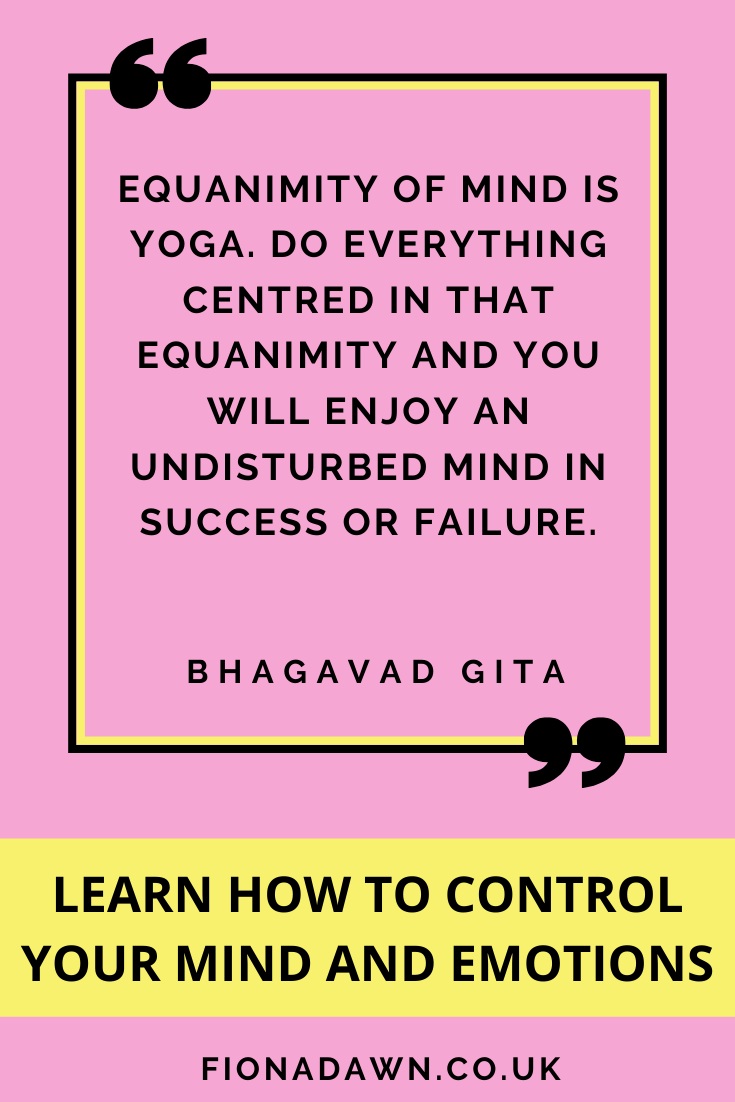Rudyard Kipling’s poem ‘If’ beautifully conveys a powerful sense of the equanimity that yogis strive for:

If you can keep your head when all about you
Are losing theirs and blaming it on you,
If you can trust yourself when all men doubt you,
But make allowance for their doubting too;
If you can wait and not be tired by waiting,
Or being lied about, don’t deal in lies,
Or being hated, don’t give way to hating,
And yet don’t look too good, nor talk too wise:
If you can dream – and not make dreams your master;
If you can think – and not make thoughts your aim;
If you can meet with Triumph and Disaster
And treat those two impostors just the same;
If you can bear to hear the truth you’ve spoken
Twisted by knaves to make a trap for fools,
Or watch the things you gave your life to, broken,
And stoop and build ’em up with worn-out tools:
If you can make one heap of all your winnings
And risk it on one turn of pitch-and-toss,
And lose, and start again at your beginnings
And never breathe a word about your loss;
If you can force your heart and nerve and sinew
To serve your turn long after they are gone,
And so hold on when there is nothing in you
Except the Will which says to them: “Hold on!”
If you can talk with crowds and keep your virtue,
Or walk with Kings – nor lose the common touch,
If neither foes nor loving friends can hurt you,
If all men count with you, but none too much;
If you can fill the unforgiving minute
With sixty seconds’ worth of distance run,
Yours is the Earth and everything that’s in it,
And – which is more – you’ll be a Man, my son.
IF, by RUDYARD KIPLING
Such is the importance of cultivating equanimity that some would even say that learning to maintain equanimity off the mat is the reason for getting on the mat in the first place. So, what exactly is equanimity? It is a state of composure, balance, harmony, non judgement, non attachment and evenness of temper regardless of the situation.
This sentiment is echoed by Sonia Ricotti in her ‘Unsinkable Bounce Back System’ that I am currently participating in. Sonia reminds us that the situation is what the situation is, but we alone are in control of the way we feel. It is in realising that our feelings are independent of the situation that we can find peace and freedom in the midst of changing circumstances. We simply need to change our focus. Like the Chinese farmer in the video, we just don’t know how circumstances will change or what the consequences will be. Can we, like the Chinese farmer, simply receive each moment as it is without labelling it as “good” or “bad”? Rudyard Kipling recognised that, when we cannot know how events will unfold, our labels are merely imposters:

If you can meet with Triumph and Disaster
And treat those two imposters just the same
RUDYARD KIPLING
The even-minded openness of equanimity allows the mystery of the unknowable and uncontrollable to unfold and be met with a balanced acceptance, rather than a response borne of reactivity or emotion.

You can’t stop the waves, but you can learn to surf!
SWAMI SATCHIDANANDA







